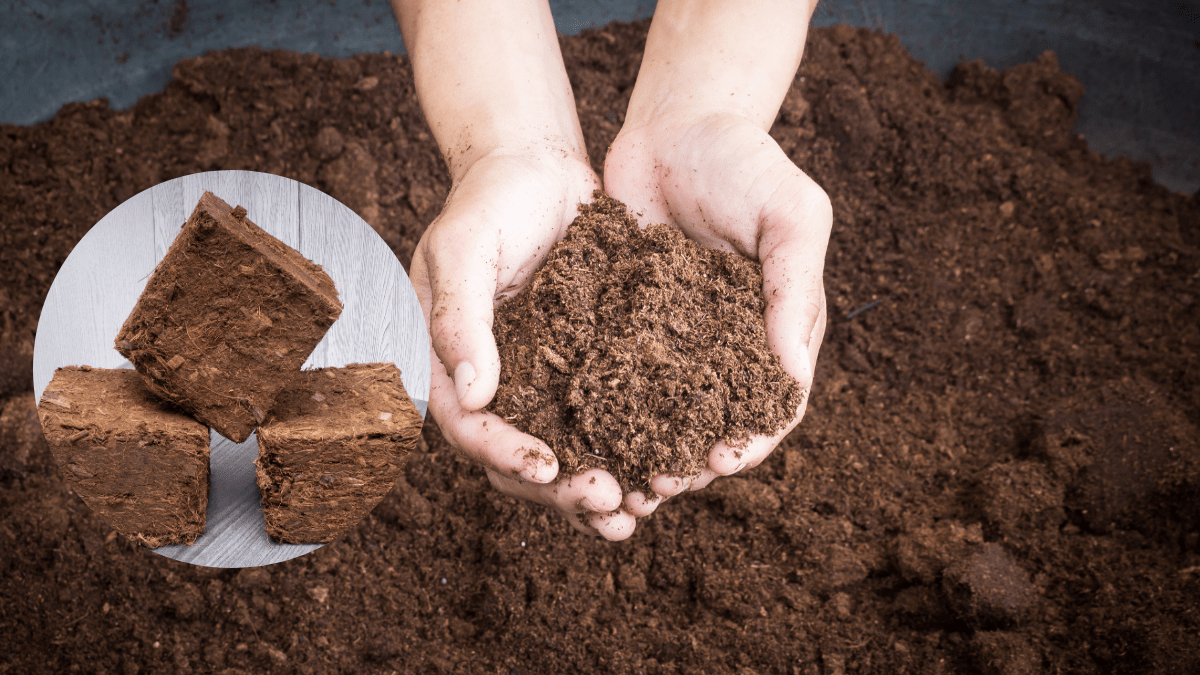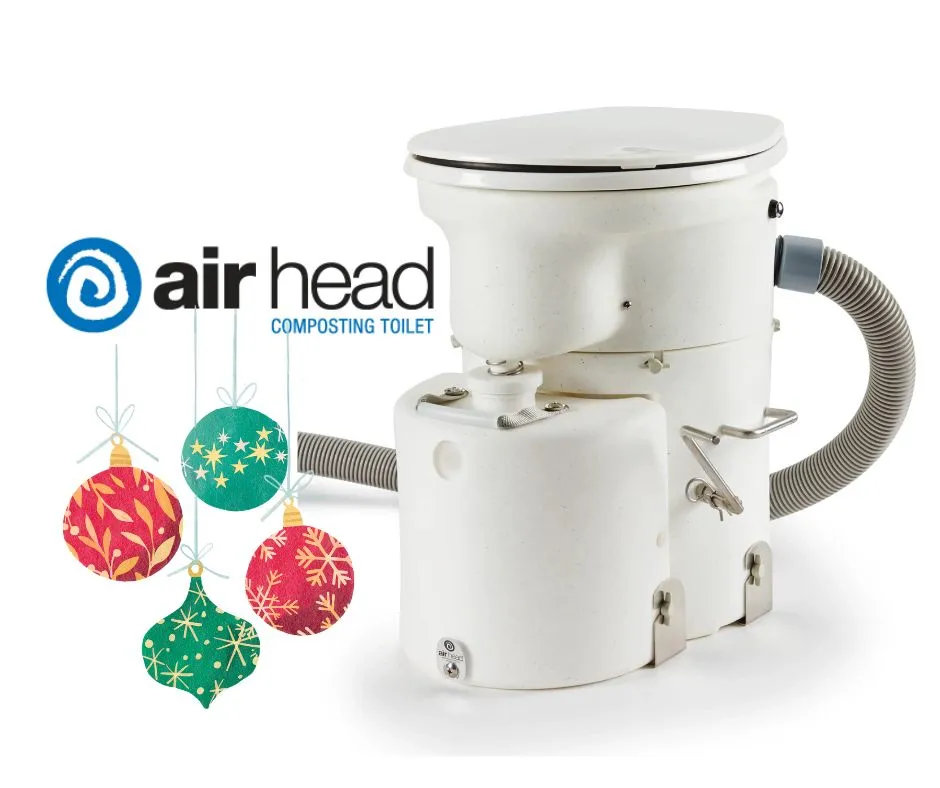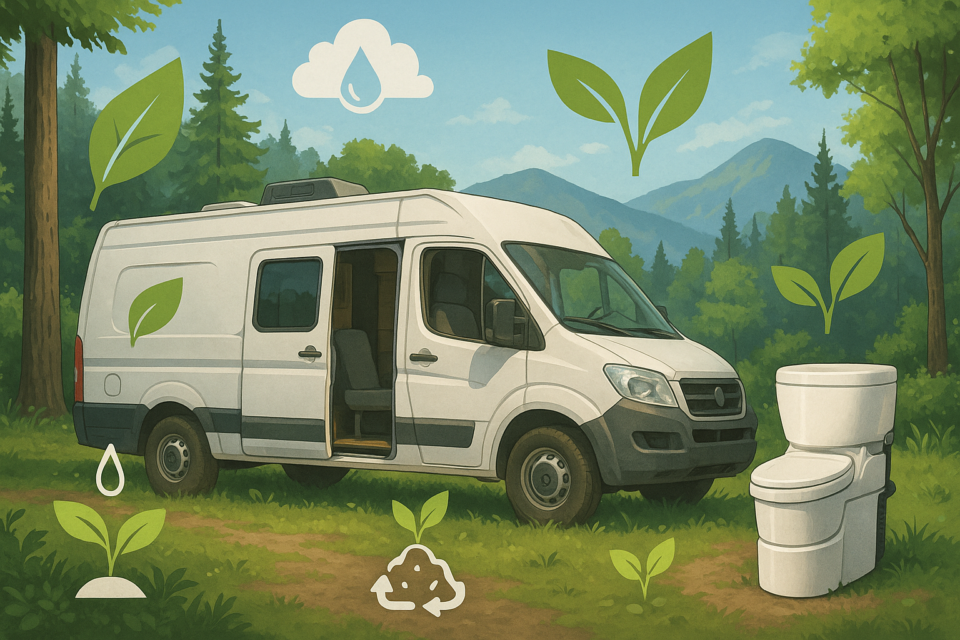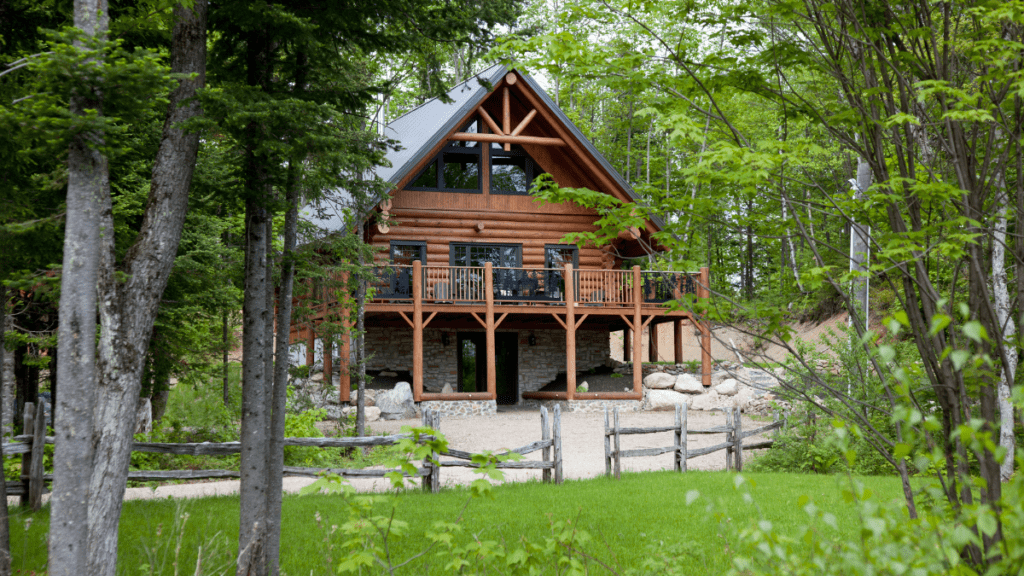
When it comes to sustainable living, every choice matters. Whether you’re building a cozy off-grid retreat or upgrading your existing cabin, a composting toilet is a game-changer. Offering an eco-friendly, practical, and cost-effective alternative to traditional plumbing, composting toilets are ideal Let’s explore why Air Head composting toilet is the perfect addition to your cabin, highlighting the environmental benefits, ease of use, and practical advantages that make it a must-have for eco-conscious living.
Cabins are often designed to immerse you in nature, away from the hustle and bustle of modern life. But while the idea of disconnecting is appealing, the logistics of plumbing in remote areas can be challenging. Composting toilets offer a simple solution that aligns perfectly with cabin living. Here’s why they’re the ideal choice:
One of the standout features of a composting toilet is its minimal water use. Traditional toilets can use up to 1.6 gallons of water per flush—or even more with older models. In contrast, composting toilets require little to no water, making them perfect for locations where water is scarce or needs to be transported in.
By installing a composting toilet in your cabin, you can:
This is particularly beneficial for cabins in off-grid locations where water supply is limited or must be sourced from rainwater collection systems.
In a traditional septic system, wastewater must be treated, and improper maintenance can lead to leaks or contamination of nearby soil and waterways. Composting toilets sidestep these concerns by transforming human waste into compost, significantly reducing environmental impact.
Composting toilets also:
For eco-conscious cabin owners, this reduction in waste is a step toward more sustainable living.
One of the unique benefits of composting toilets is that they turn waste into a valuable resource. Properly composted material can be used as a nutrient-rich soil additive for non-edible plants. This makes your cabin’s waste management not just eco-friendly, but productive.
Imagine using your compost to enhance the flower beds surrounding your cabin or to nourish trees and shrubs in your yard. It’s a closed-loop system that mirrors nature’s processes and minimizes waste.

Did you know that composting toilet is perfect for your cabin? Cabins often lack the infrastructure for traditional plumbing, and installing a septic system can be labor-intensive and incredibly expensive. Composting toilets are simple to install in comparison. With no need for water connections or complex pipework, you can have your toilet up and running in no time.
Composting toilets are particularly suited for:
The modern composting toilet is designed with convenience in mind, offering features that make them easy to use and maintain. Regular tasks like emptying the compost bin are straightforward and can often be done just a few times a year, depending on usage.
Look for models with:
For instance, Air Head Composting Toilets feature secure rubber gaskets that seal the unit tightly, preventing leaks and odors. This makes them especially suited for cabins with wet bathrooms or shower areas, where keeping the composting chamber dry is crucial.
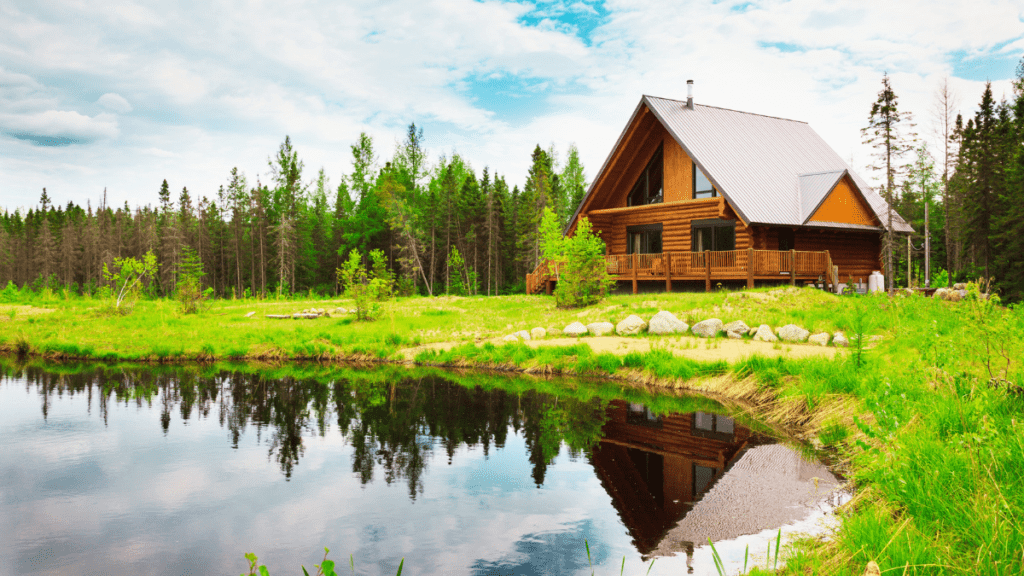
While the upfront cost of a composting toilet may seem higher than a traditional toilet, the savings are significant when you take the whole project into consideration. By eliminating the need for a septic system and installing plumbing, you’ll save on:
For budget-conscious cabin owners, this cost-effectiveness is a major draw.
For those living off-grid, composting toilets are an essential piece of the puzzle. They operate independently of water and electricity (in most cases), making them a reliable option no matter where your cabin is located.
Additionally, their compact size and versatility allow them to be installed in creative spaces, from tiny homes to boat cabins, expanding their usability.
Yes! Rest assured, composting toilets are designed to be clean and sanitary. Modern designs incorporate features like urine separation, effective ventilation, and robust seals to prevent odors and ensure a pleasant user experience.
Plus, when properly maintained, the composting process naturally breaks down waste into safe, pathogen-free compost.
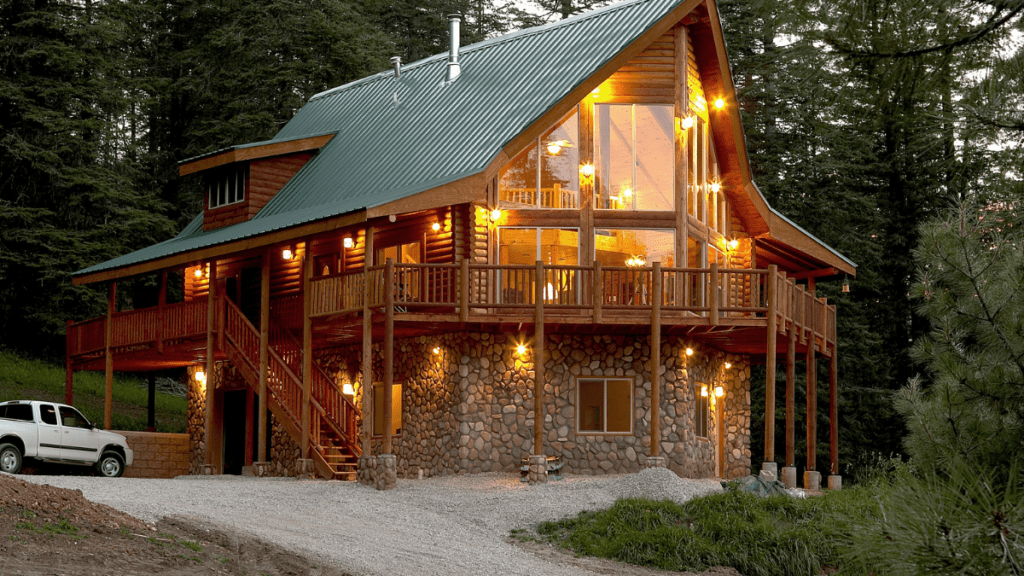
As the world moves toward more sustainable solutions, composting toilets are an easy way to reduce your environmental footprint. Here’s how:
When you choose a composting toilet for your cabin, you’re not just investing in your cabin—you’re investing in a more sustainable future.
Adding a composting toilet to your cabin is more than just a practical decision—it’s a commitment to living in harmony with nature. With benefits ranging from water conservation and reduced waste to ease of installation and long-term cost savings, it’s clear why these toilets are gaining popularity among eco-conscious cabin dwellers.
Whether you’re upgrading your current setup or starting fresh, a composting toilet can simplify your off-grid lifestyle while keeping your cabin environmentally friendly. Make the switch today, and enjoy the peace of mind that comes with sustainable living.
Ready to explore the perfect composting toilet for your cabin? Visit our website to learn more about the innovative features of Air Head Composting Toilets and how they can transform your cabin’s waste management system!

When it comes to sustainable living, every choice matters. Whether you’re building a cozy off-grid retreat or upgrading your existing cabin, a composting toilet is a game-changer. Offering an eco-friendly, practical, and cost-effective alternative to traditional plumbing, composting toilets are ideal Let’s explore why Air Head composting toilet is the perfect addition to your cabin, highlighting the environmental benefits, ease of use, and practical advantages that make it a must-have for eco-conscious living.
Cabins are often designed to immerse you in nature, away from the hustle and bustle of modern life. But while the idea of disconnecting is appealing, the logistics of plumbing in remote areas can be challenging. Composting toilets offer a simple solution that aligns perfectly with cabin living. Here’s why they’re the ideal choice:
One of the standout features of a composting toilet is its minimal water use. Traditional toilets can use up to 1.6 gallons of water per flush—or even more with older models. In contrast, composting toilets require little to no water, making them perfect for locations where water is scarce or needs to be transported in.
By installing a composting toilet in your cabin, you can:
This is particularly beneficial for cabins in off-grid locations where water supply is limited or must be sourced from rainwater collection systems.
In a traditional septic system, wastewater must be treated, and improper maintenance can lead to leaks or contamination of nearby soil and waterways. Composting toilets sidestep these concerns by transforming human waste into compost, significantly reducing environmental impact.
Composting toilets also:
For eco-conscious cabin owners, this reduction in waste is a step toward more sustainable living.
One of the unique benefits of composting toilets is that they turn waste into a valuable resource. Properly composted material can be used as a nutrient-rich soil additive for non-edible plants. This makes your cabin’s waste management not just eco-friendly, but productive.
Imagine using your compost to enhance the flower beds surrounding your cabin or to nourish trees and shrubs in your yard. It’s a closed-loop system that mirrors nature’s processes and minimizes waste.

Did you know that composting toilet is perfect for your cabin? Cabins often lack the infrastructure for traditional plumbing, and installing a septic system can be labor-intensive and incredibly expensive. Composting toilets are simple to install in comparison. With no need for water connections or complex pipework, you can have your toilet up and running in no time.
Composting toilets are particularly suited for:
The modern composting toilet is designed with convenience in mind, offering features that make them easy to use and maintain. Regular tasks like emptying the compost bin are straightforward and can often be done just a few times a year, depending on usage.
Look for models with:
For instance, Air Head Composting Toilets feature secure rubber gaskets that seal the unit tightly, preventing leaks and odors. This makes them especially suited for cabins with wet bathrooms or shower areas, where keeping the composting chamber dry is crucial.

While the upfront cost of a composting toilet may seem higher than a traditional toilet, the savings are significant when you take the whole project into consideration. By eliminating the need for a septic system and installing plumbing, you’ll save on:
For budget-conscious cabin owners, this cost-effectiveness is a major draw.
For those living off-grid, composting toilets are an essential piece of the puzzle. They operate independently of water and electricity (in most cases), making them a reliable option no matter where your cabin is located.
Additionally, their compact size and versatility allow them to be installed in creative spaces, from tiny homes to boat cabins, expanding their usability.
Yes! Rest assured, composting toilets are designed to be clean and sanitary. Modern designs incorporate features like urine separation, effective ventilation, and robust seals to prevent odors and ensure a pleasant user experience.
Plus, when properly maintained, the composting process naturally breaks down waste into safe, pathogen-free compost.

As the world moves toward more sustainable solutions, composting toilets are an easy way to reduce your environmental footprint. Here’s how:
When you choose a composting toilet for your cabin, you’re not just investing in your cabin—you’re investing in a more sustainable future.
Adding a composting toilet to your cabin is more than just a practical decision—it’s a commitment to living in harmony with nature. With benefits ranging from water conservation and reduced waste to ease of installation and long-term cost savings, it’s clear why these toilets are gaining popularity among eco-conscious cabin dwellers.
Whether you’re upgrading your current setup or starting fresh, a composting toilet can simplify your off-grid lifestyle while keeping your cabin environmentally friendly. Make the switch today, and enjoy the peace of mind that comes with sustainable living.
Ready to explore the perfect composting toilet for your cabin? Visit our website to learn more about the innovative features of Air Head Composting Toilets and how they can transform your cabin’s waste management system!

